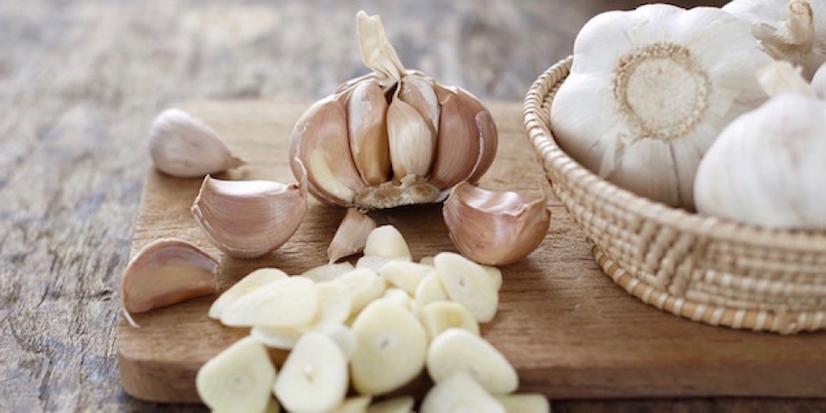Polycystic ovarian syndrome (PCOS) is a common condition among women between the ages of 12 and 45. Classic symptoms of PCOS include weight gain, insulin resistance leading to high blood sugar, hormonal imbalances (elevated testosterone), menstrual abnormalities, and infertility. For years, I’ve been advocating structured exercise training with strategic eating for many women with PCOS and have witnessed outstanding results.
Although the development of this condition is quite a complex process that’s closely linked to genetics, evidence has long suggested that a healthy lifestyle including regular physical activity and good nutrition can substantially alleviate associated symptoms. Here are seven of the most effective strategies that have been proven highly beneficial for the management of PCOS and related symptoms.
Practicing Calorie Management
Over half of females with PCOS are overweight or obese with most exhibiting excess visceral (belly) fat. It is this type of fat that’s closely linked to insulin resistance. Weight loss reduces insulin resistance and has been associated with beneficial effects on hormones, menstrual problems, and other common symptoms of PCOS. In order to lose weight you must make calorie management a regular practice by continuously creating deficits between the calories you consume and the calories you burn.
Related Article: Estimating Your Metabolic Rate and Daily Calorie Needs
Performing Cardiovascular Exercise
Controlling your weight with regular cardiovascular (cardio) exercise is a sure way to alleviate many symptoms of PCOS. In fact, it’s one of the most effective ways to increase the amount of calories you burn on a day-to-day basis, which is essential for long-term weight management. The optimal amount and type of cardio varies from person to person.
But, generally, a daily minimum of 30-45 minutes of brisk walking, jogging, bicycling, swimming, and aerobic dance is sufficient for reducing PCOS symptoms while 60 minutes on most days of the week will help keep your body weight under control.
Related Article: How to Perform Cardio Exercise the Right Way
Adopting a Largely Plant-Based Diet
A plant-based diet is one that provides relatively large amounts of vegetables, fruits, grains, legumes, nuts and seeds in addition to protein-rich soy foods like soymilk, tofu, and tempeh. The nutritional composition of such a diet can considerably decrease the likelihood of developing obesity and insulin resistance. Furthermore, research suggests that implementing a diet that’s largely plant-based can significantly lower elevated testosterone levels while also reducing the risk of PCOS-related infertility.
Related Article: Nutrient Deficiencies All Vegans Should Be Aware Of
Engaging in Resistance Training
When trying to lose weight with PCOS, some women avoid resistance (weight) training for a fear of “bulking up” or “getting bigger”. In spite of what many believe, resistance training is absolutely critical for weight loss and long-term weight management. While you don’t burn a significant amount of calories during a typical session, this type of training boosts muscle mass. Muscle is indeed the fuel that turns your body into a fat burning furnace.
The more muscle you have, the higher your metabolic rate, which ultimately increases your calorie burning potential and weight loss over time.
Related Article: 5 Reasons Why Resistance Training Is Necessary for Weight Loss
Eating Fiber-Rich Whole Grain Foods
Hormonal imbalances can influence the development of PCOS, specifically the female sex hormone estrogen. Whole grain foods are concentrated sources of phytoestrogens that have been shown to naturally support healthy hormonal balance. As the name implies, phytoestrogens are plant-based chemicals that have “estrogen-like” effects. In addition to these chemicals, whole grains are packed full of dietary fiber, which greatly protects against visceral obesity and insulin resistance.
A daily intake of 3-5 servings of 100% whole grain foods (oatmeal, quinoa, and brown rice) is all that’s necessary for benefits.
Related Article: How Different Types of Fiber Affect Your Health
Consuming Healthy Fats and Oils
Monounsaturated and polyunsaturated (omega-3) fatty acids are types of healthy fats that are housed in a wide range of foods including oily fish (salmon, trout, and tuna), avocado, nuts, flaxseeds, and olive oil. Regularly consuming healthy fats improves testosterone levels in women with PCOS, even in the absence of weight loss. Collectively, monounsaturated and polyunsaturated fatty acids also prevent excess fat accumulation in the body, especially the visceral fat that’s linked to insulin resistance.
Related Article: Good Fats Versus Bad Fats: What You Need to Know About Dietary Fat
limiting Intake of Artificial Trans Fats
A high intake of artificial trans fats contributes to obesity and favors elevated testosterone levels in PCOS. Such fats are present in a variety of processed foods including snack foods, fried foods, and many salad dressings. Trans fats should be limited to less than 1% of daily calories, as they have no nutritional value. In addition to promoting unnecessary weight gain and hormonal imbalances, a high intake of these fats greatly increases the risk of numerous chronic diseases.
As such, for disease prevention and overall good health it’s best to avoid them whenever possible.
The Bottom Line
If you have PCOS, coupling regular exercise training with good nutrition can greatly reduce the severity of associated symptoms. Incorporating these seven strategies is a critical step for successfully managing this complex condition.







